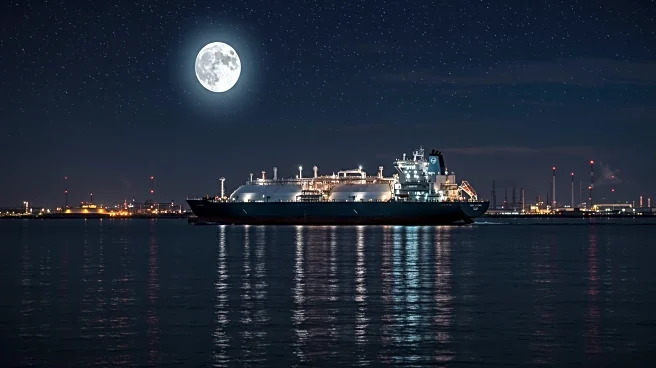What's Happening?
Major oil companies are significantly increasing their investments in liquified natural gas (LNG), despite predictions of peak gas demand by the end of the decade. Shell, TotalEnergies, BP, Exxon Mobil, and Chevron are among the companies expanding their LNG portfolios. Shell CEO Wael Sawan emphasized LNG's role in the company's long-term strategy, citing its versatility in responding to global energy needs. The International Energy Agency (IEA) forecasts a plateau in gas demand, raising concerns about the sustainability of these investments.
Why It's Important?
The push towards LNG by major oil companies highlights a strategic shift in the energy sector, aiming to capitalize on growing global demand. This move could impact the energy transition, as LNG is derived from natural gas, a fossil fuel. Critics argue that LNG's environmental impact, particularly methane leaks, challenges its viability as a 'bridge fuel.' The investments reflect a bet against the rapid rise of renewable energy sources, which could undercut LNG demand.
What's Next?
Energy supermajors must ensure that LNG projects remain profitable even if demand growth slows post-2040. The IEA warns of potential supply gluts exacerbated by accelerated energy transitions. Companies will need to navigate geopolitical risks, particularly in Asia, where countries are vulnerable to supply disruptions. The focus on capital discipline will be crucial to maintaining competitiveness and profitability in the evolving energy landscape.
Beyond the Headlines
The strategic focus on LNG by oil majors could influence global energy policies and market dynamics. The environmental implications of increased LNG production may spark debates on sustainable energy practices. The geopolitical risks associated with LNG supply chains could affect international relations and energy security strategies.










